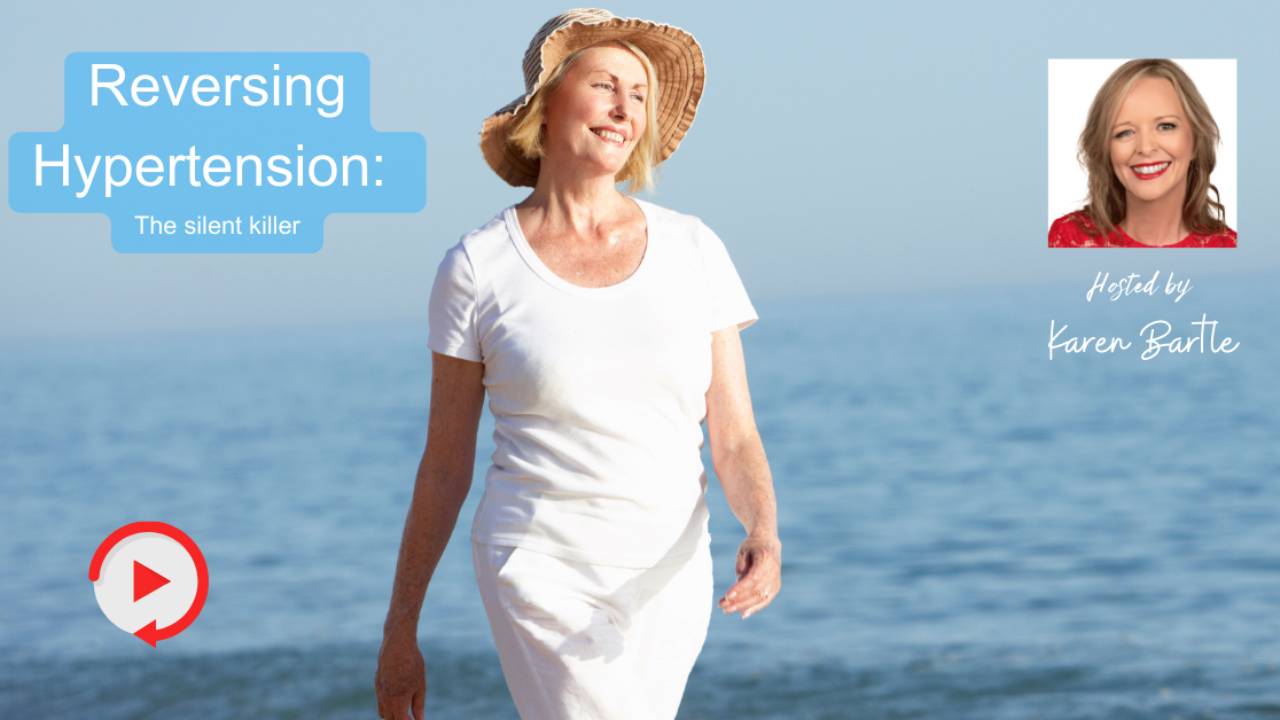Hypnotherapy for improving cardiovascular health

Cardiovascular disease (CVD) is a major cause of disability and premature death and includes coronary heart disease (CHD), stroke, and peripheral arterial disease (reduced blood flow to the limbs causing pain).
These conditions are frequently brought about by the development of atheroma and thrombosis (blockages in the arteries), which develop over several years and are usually advanced by the time symptoms occur. They are also linked to conditions such as heart failure, chronic kidney disease and dementia.
Cardiovascular disease is a major cause of death in Australia, responsible for 118 deaths a day, with 1 person dying of cardiovascular disease every 12 minutes.
Someone is hospitalised for CVD every minute, that's a total of 1619 hospitalisations per day!
What are the behavioural and biomedical risk factors for Cardiovascular Disease?
Most cardiovascular diseases are very preventable by addressing behavioural risk factors such as smoking, overeating, physical inactivity, stress, and harmful use of alcohol, and biomedical risk factors e.g., overweight and obesity, high blood pressure, abnormal blood lipids (dyslipidaemia) and impaired glucose regulation.
O’Doherty et al. (2016) found that men and women aged 50 who maintain a healthy lifestyle e.g., managing a healthy weight, drinking in moderation, being a non-smoker and participating in vigorous physical activity, lived between 7 and 15 years longer than those with an unfavourable lifestyle.
Modification of risk factors has been shown to reduce mortality and morbidity in people with diagnosed or undiagnosed cardiovascular disease.
Prevention is better than cure!
The consensus in the health and medical spheres on managing cardiovascular disease is that prevention and early detection and taking appropriate action is better than cure.
That is, living healthily e.g., not smoking, consuming a healthy balanced diet, taking regular physical exercise, detecting, and monitoring early signs of risk of disease, taking medications and using behavioural interventions to manage risk factors such as high blood pressure, obesity, and abnormal blood lipids (WHO 2007).

Take the risk out of developing cardiovascular disease
Hypnotherapy is one of the most relaxing and simplest ways to reduce risk of developing cardiovascular disease.
Using hypnosis we can induce a surface or deep trance-like state i.e., a daydreaming state of consciousness like the one we all get while dropping off to sleep, staring out of a window, or doing a repetitive or engaging task and our mind wanders or goes blank for a short while as we lose track of time.
Hypnotherapy integrated with evidence based approaches such as cognitive behavioural therapy, mindfulness, EMDR and NLP is very versatile and can be used briefly to help manage all kinds of unhealthy habits and addictions as well as increase confidence, motivation and focus to do more of the things that we know are healthy for us.
All these therapeutic tools by themselves and combined together create a healthy, natural, fast and enjoyable way to learn to think and feel differently about the things we need to change to manage our health behaviours to prolong and improve our quality of life for ourselves and our families.
Health coaching for improving cardiovascular health
To improve your health see our coaching options below:

Reverse Hypertension
Whilst hypertension, is one of the biggest silent killers affecting an estimated 1.3 billion people worldwide and killing around 25 thousand deaths per day, it is very reversible.

Quit smoking
Quitting smoking reduces blood pressure, increases physical activity tolerance, and reduces bad cholesterol significantly improving cardiovascular function.

Manage weight
Maintaining a healthy weight can manage blood pressure, cholesterol levels, reduce inflammation, and lower your risk of developing type 2 diabetes.

Reduce stress & anxiety
Managing stress reduces several risk behaviours such as smoking, unhealthy eating/drinking and lack of physical activity, which all contribute to high blood and cholesterol levels.

Motivation to exercise
Regular exercise helps manage weight, improves circulation, lifts mood, reduces blood pressure, and lowers blood cholesterol levels.
Want to learn more about how you can eliminate the risk factors to improve your cardiovascular health?
Contact us

Dealing with the grief of losing someone to cardiovascular disease (CVD).
It was on the morning of the 23rd of July 2019 that I got an unexpected call on my mobile. It was my nephew. He was in a waiting area at the hospital...


